
Save this storySave this storySave this storySave this story
Many albums released in 2021 were pandemic records. Some were recorded in isolation; others were slated for earlier release, shelved, then put out into the world belatedly; a lot of them simply seemed inextricable from the surreality of this time, which we can’t yet call “post-pandemic life.” It’s a cliché to say that tragedy inspires great art, but this year raised the question of what happens when loss becomes the background noise to life—so regular that it presses in from all sides, like restaurant chatter.
2021 in Review
New Yorker writers reflect on the year’s highs and lows.

As I ventured back into the world during the past year, trying to reëstablish old routines, I gravitated toward music that seemed to synthesize the soft pandemonium around me. The records that resonated with me most were eccentric, often sardonic in tone, and even a bit haunting. I found myself wanting to listen to music that’s suspicious of neat endings—music that attacks the senses, that’s volatile even in its quiet moments.
The Armed, “ULTRAPOP”

“ULTRAPOP,” the newest—and best—album from the Detroit hardcore collective the Armed, is as stunning as it is harsh. The collective’s ensemble cast brings elaborate detail to its seismic sound, and the songs accumulate momentum with deluges of noise that blend punk and pop. The title track’s glowing, crystalline power electronics crest into a swell of guitar distortion, surging from choral to metal. On hair-raising songs such as “Masunaga Vapors” and “An Iteration,” the intense rock sounds nearly symphonic.
Patricia Brennan, “Maquishti”
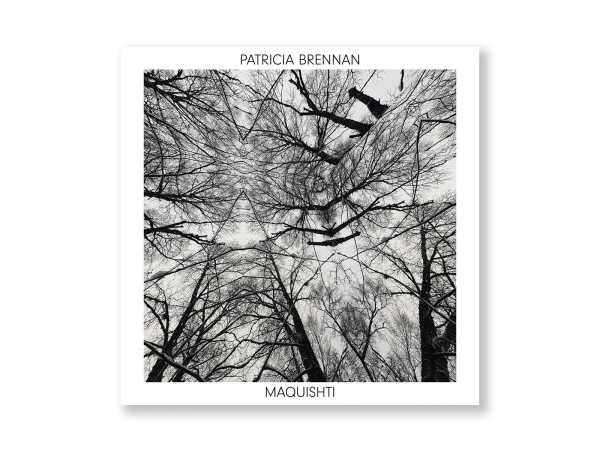
The songs of the Mexican mallet percussionist Patricia Brennan are sparkling and hypnotic, harnessing the music-box appeal of her instruments. “Maquishti,” her début as a leader, is a majestic work of placidity and release. Performed alone by Brennan, on vibraphone and marimba, this atmospheric album breaks down its own compositional logic over time: gorgeously arranged early tracks give way to wonkier songs, such as “Improvisation VII” and “Point of No Return,” which reveal Brennan’s genius through distortions of rhythm and tone.
Dave, “We’re All Alone in This Together”

The London rapper and pianist Dave won some of Britain’s biggest music awards in 2019 for “Psychodrama,” a concept album built around therapy. On “We’re All Alone in This Together,” he gets outside his own head. In carefully articulated raps that press through keyboard production and Afro-pop rhythms, Dave celebrates the luxuries afforded by fame, and his cadences loosen even as the verses brace. From his new perch, he reappraises his own turbulent upbringing, and questions what it means to grow up in the shadow of an empire.
Indigo De Souza, “Any Shape You Take”
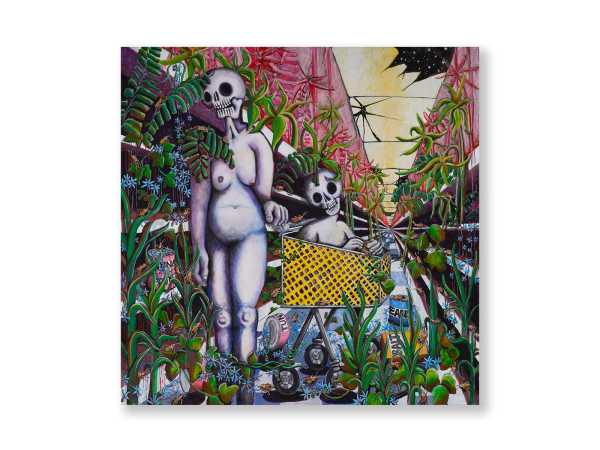
The indie singer-songwriter Indigo De Souza’s sophomore album, “Any Shape You Take,” is the kind of breakthrough that most young artists can only dream of. Composed of ten tracks of varying ferocity, this album lightens the grunge load, moving toward a softer pop sound and bringing greater texture to De Souza’s pained love songs. Her voice, which can transform from a warble to a howl in an instant, skates along the gentle thrum of guitars and synths. From the blissful, Auto-Tuned high of its opener, “17,” to its daffy, depressive closer, “Kill Me,” “Any Shape You Take” is intense and heartfelt, and conveys the feeling of drawing out a relationship until it hurts.
Dean Blunt, “BLACK METAL 2”
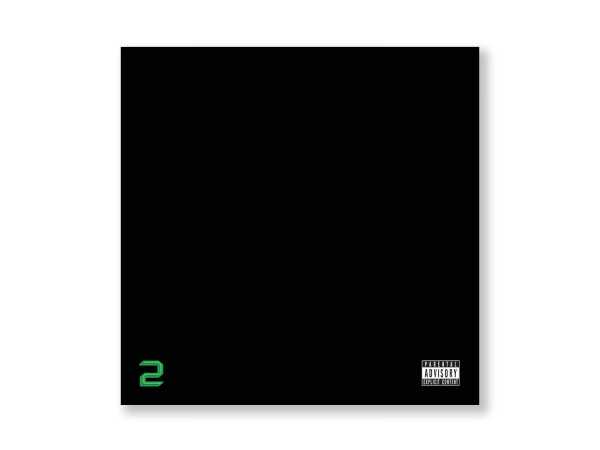
In 2014, the British avant-garde musician Dean Blunt, known for his impenetrable persona and challenging sound, took a step toward easier listening with the solo album “BLACK METAL.” The record adhered to something closer to pop structure, but you couldn’t really call it accessible. (One song, aptly titled “Forever,” was a slow-trotting thirteen-minute requiem.) This sequel marks a progression in nearly every way. Blunt has improved as a performer and a producer; the songs are more melodic, the strings sound lush, and his authoritative baritone comes to the fore.
Kevin Gates, “Only the Generals, Pt. II”
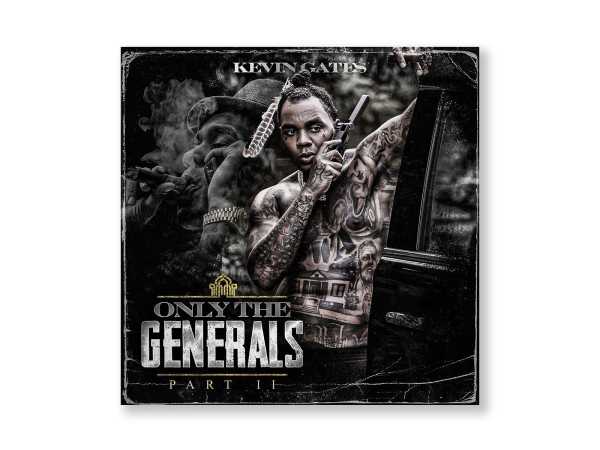
In the mid-two-thousands, the Baton Rouge rapper Kevin Gates emerged as a folk antihero and unlikely local rap star. A stint in prison stifled his momentum, but he has returned in recent years with renewed vigor. On “Only the Generals, Pt. II,” Gates—who is one of the most gifted rappers working today—reasserts himself as a capable hook man and an effortless storyteller. In standout moments, Gates plays into his gravelly tone (“Send That Load”) and resumes an enduring narcotic love story (“Plug Daughter 2”).
Grouper, “Shade”

“Shade,” the latest album from the ambient musician Liz Harris, who performs as Grouper, is a lyrical and purposeful collection of acoustic songs made during the last fifteen years. Conjuring the atmosphere of Portland, Oregon, where Harris lives, the project threads together a series of understated ballads with muted guitar playing; raw, unvarnished vocals; and Harris’s exquisite, inscrutable poetry.
Helado Negro, “Far In”
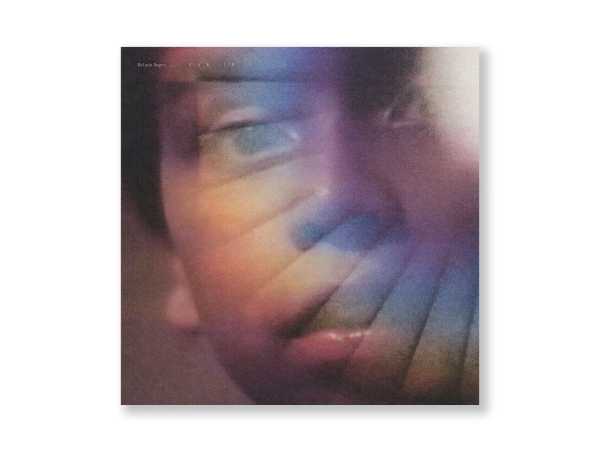
The singer-producer Roberto Carlos Lange, who records as Helado Negro, wrote “Far In” during the first pandemic lockdown, which he spent in in Marfa, Texas. This groovy record is a meditative ode to nature; the songs, which branch off into pop, folk, and even light disco sounds, are inspired by changes in scenery, the sounds of the outdoors, and memories of Florida’s orange groves. Lange’s singing, in English and Spanish, lends the project a radiant composure. Psychedelic and percussive, “Far In” wonders aloud about our sense of place.
Cassandra Jenkins, “An Overview on Phenomenal Nature”
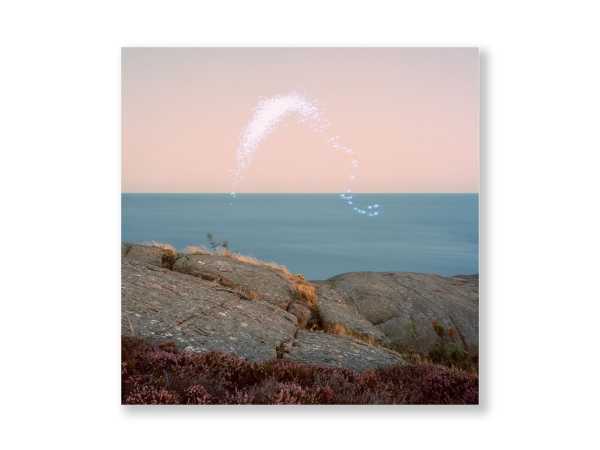
Cassandra Jenkins wrote “An Overview on Phenomenal Nature” after the death of indie musician David Berman, just before they were to go on tour together, in the summer of 2019. Like Berman, Jenkins has an uncomplicated virtuosity, and finds brilliance in the ordinary. This album, a study of connection and impermanence, lays Jenkins’s spry vocals over folk guitar that seems to get quieter with each track, and eventually gives way to birdsong in the album’s closing seconds. “In your eyes I see the panoply / Of all the people inside of me,” Jenkins coos on “Crosshairs,” finding momentary refuge in a gaze.
Ka, “A Martyr’s Reward”

After more than a decade on the independent circuit, the Brownsville rapper Ka seems to be settling into his prime. His sixth solo album, “A Martyr’s Reward,” is his sharpest work yet, sifting through the events of his past to draw patterns of betrayal and sacrifice. The largely self-produced project, which tallies personal, political, and artistic debts, has keen, granular verses that unfurl like scripture over quietly possessed samples. A wary rapper with a raspy voice, Ka has spent his whole life trying to crack the code to the perfect, arcane rhyme, and his verses have never sounded more certain than they do here.
L’Rain, “Fatigue”
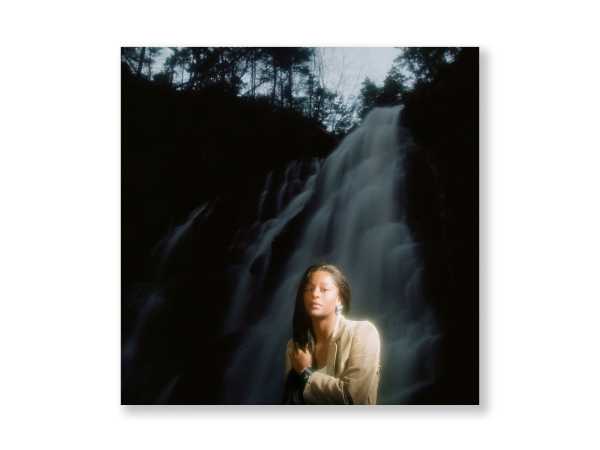
“Fatigue,” the Brooklyn multi-instrumentalist Taja Cheek’s second album as L’Rain, meditates on the labor of self-reformation. This experimental soul music, which Cheek has described as “approaching songness,” puts emphasis on sonic reconstruction, mixing R. & B., jazz, and psychedelia, tape-manipulated loop music and field recordings, and the work of dozens of collaborators. At only thirty minutes, the album is a rich, free-flowing work, and its songs defy any sort of linear logic. It’s a project of both mourning and recovery, full of dense, ambitious compositions and gorgeous accidents.
Low, “Hey What”

In 2018, the indie-rock band Low reimagined itself with the album “Double Negative,” which manipulated the group’s signature slowcore sound into a gorgeous cluster of digital distortion and alien vocals. “Hey What,” released this year, is an unbelievable follow-up—one that discovers disorienting, imaginative means to mess with melody and form, often devolving from stunning tonal clarity into a sprawling jumble of glitchy, broken-down noise music.
maassai, “With the Shifts”

In recent years, Brooklyn has become a hub for woozy, jazz-inspired lo-fi rap, but few artists on the scene are as forthright in verse as maassai. Armed with an insistent voice and a no-nonsense disposition, maassai spits hard-earned wisdom over grainy, nostalgic beats. “With the Shifts,” an eighteen-minute album, is free-flowing and slightly wonky, and she moves emphatically through dusty soul samples as if leaving footprints in sand. “Honestly, I’m thankful / Each time I came through, levelled up / It’s regular, I’m made new / Incredible / Same core, new eyes, a better view,” she raps on “Nine Lives,” describing how she keeps finding fresh ways of seeing.
Mach-Hommy, “Pray for Haiti”
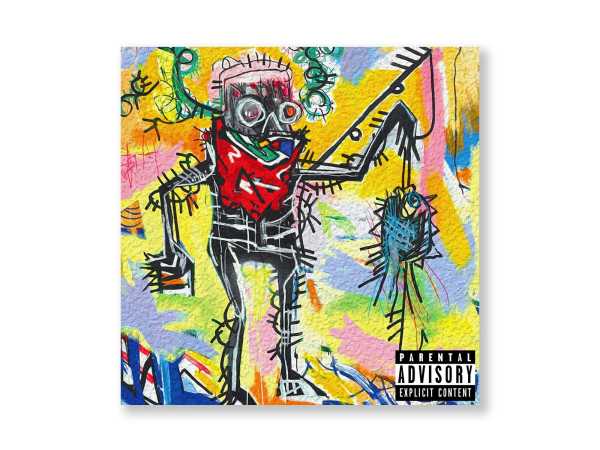
The enigmatic New Jersey rapper Mach-Hommy makes a star turn on “Pray for Haiti,” his one-shot album for the indie label Griselda. Hommy, once a cagey figure who went out of his way to be inaccessible, used this record as an occasion to showcase himself to a wider audience. But he hasn’t sacrificed his prior persona completely. A detached, cunning performer with a slippery sense for wordplay, Hommy raps as if avoiding contact; his verses, dotted with Haitian Creole and defined by endless scheming, are full of shifty maneuvers. Over some of the most well-curated soul samples of his career, Hommy makes his presence felt as a street rapper turned luxury connoisseur.
Magdalena Bay, “Mercurial World”
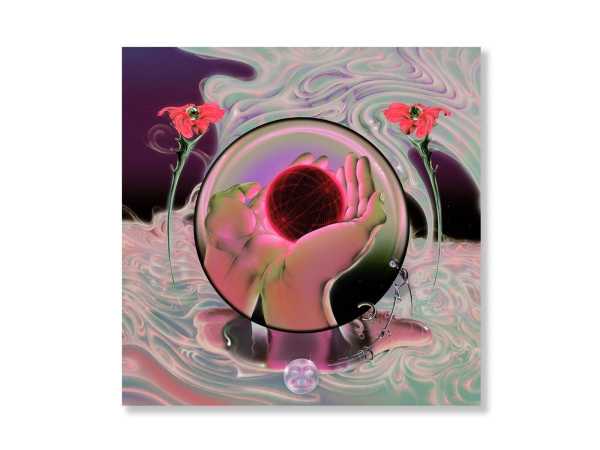
The singer Mica Tenenbaum and the engineer Matthew Lewin—who write, produce, direct, and edit their songs and videos under the name Magdalena Bay—took a pop crash course after playing together in a prog-rock band, and, in the last five years, they’ve found their own chic sound. “Mercurial World,” the duo’s début album, is a posh synthesis of its many influences, which include the sounds of Grimes, Britney Spears, and Fiona Apple and the glitchy excesses of PC Music. Carefully constructed around Tenenbaum’s singing with retro gloss and considerable detail, the record is remarkably orderly for something so referential.
Mdou Moctar, “Afrique Victime”
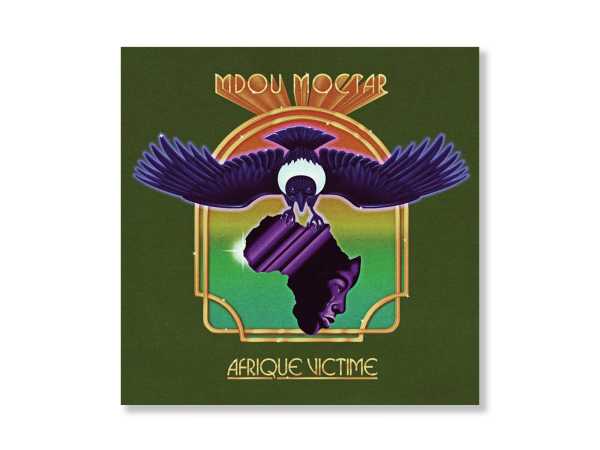
Mdou Moctar is a Tuareg blues guitarist whose music first circulated through West Africa’s underground music-distribution system: listeners passed his songs, which couldn’t be found on the Internet, to one another on their cellphones. Moctar’s work eventually made its way west, and found an unlikely audience in the U.S. “Afrique Victime,” his sixth studio album, showcases his masterly guitar playing, and explores themes of uprising and refuge. The title track is a rousing seven-and-a-half-minute broadside against neocolonialism in Niger. Sung in both Tamashek and French, the song stands with the best modern protest music, its magnitude and its sense of urgency transcending any language barrier.
Paloma Mami, “Sueños de Dalí”

As Paloma Mami, the Chilean American singer-songwriter Paloma Castillo cruises on the gyrating dembow grooves of urbano music with an understated and unflappable air. On “Sueños de Dalí,” her début album, she strings together a series of captivating cross-cultural performances, with her voice gliding through songs that blend pop, hip-hop, and R. & B production. Dipping in and out of English and Spanish, she draws in and dismisses her suitors as if with the sway of a single acrylic fingernail.
Pink Siifu, “Gumbo’!”
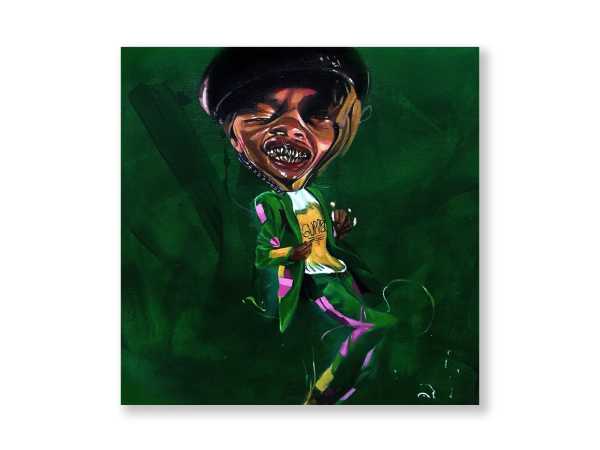
Since 2018, the rapper, singer, and producer Pink Siifu has tested the extremes of experimental hip-hop—first by making “ensley,” a lo-fi album about achieving zen, then again, with “NEGRO,” a thrashing punk album about police brutality. His latest album, “Gumbo’!,” marks yet another pivot. With a leisurely pace and a rich bass-heavy setting, “Gumbo’!” slow-boils Southern influences into a mixture of neo-soul and screw-inflected jams and posse cuts. Inspired by the Dungeon Family musical collective that included OutKast and Goodie Mob, the album pulls all the elements of playalistic Cadillac muzik—soul and funk sounds, live-sounding drums, prayer recitations by the spoken-word poet Big Rube—and updates its formula with rattling trap.
Isaiah Rashad, “The House is Burning”

After seven years of false starts, the Chattanooga rapper Isaiah Rashad fully realized his sound on “The House Is Burning,” a record that’s remarkably loose and skillful. Rashad, a diligent student of hip-hop, has always been able to synthesize the sounds of the past into something unique and progressive, but this time he allows his many influences to run rampant, chasing every stray idea to its logical conclusion. What holds it all together is Rashad’s deep reverence for the soulful Southern rap of his youth. These songs of escape and release imagine cars like cruising spacecrafts.
Nala Sinephro, “Space 1.8”

“Space 1.8” was a second try for the composer, producer, and harpist Nala Sinephro. The album’s original compositions—meditative blends of saxophone and synthesizer, mostly, which highlighted the artist’s skills as a composer rather than an instrumentalist—were lost on a hard drive in 2018. That setback prompted a personal reckoning for Sinephro, and she refocussed on her harp playing. The resulting album, released this year, is an interstellar adventure through ambient jazz: in some songs, harp strumming is a vortex through which other sounds travel, and on others the glissandos shimmer along the outer edges of modular-synth frequencies.
Squid, “Bright Green Field”
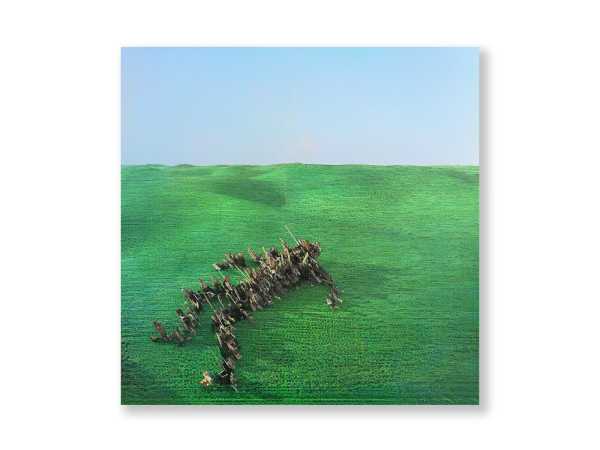
“Bright Green Field,” the début album of the British post-punk band Squid, is a rambling, omnivorous record about the convergence of real life and totalitarian fictions. Drawing upon funk, jazz, electronic, alt-rock, and industrial sounds—and with help from a medieval wind instrument called a rackett—it builds upon the group’s weird run of singles that use anxiety as fuel for sprawling, unstable orchestrations. “Bright Green Field” is about the waking reality of young adulthood and growing up during a crisis, and the music bears that urgency in its grooves.
Vince Staples, “Vince Staples”
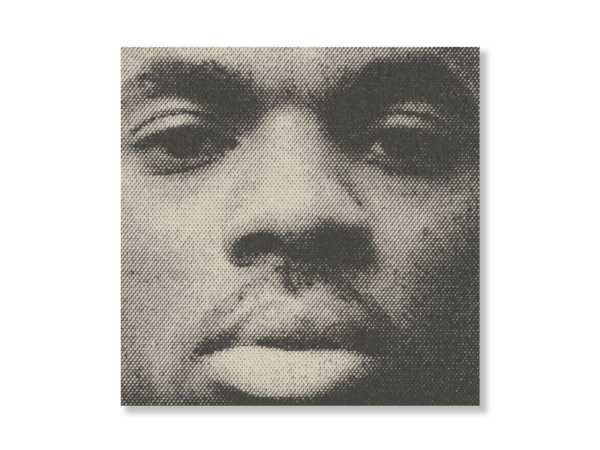
With his self-titled record, the stoic Long Beach rapper Vince Staples homes in on the traits that define him as an artist. Never one to disclose secrets, he forgoes autobiography for exhibition, and instead lets his performances identify him. Staples effectively creates a portrait of himself as a droll, economical cynic, unruffled under duress and full of acute perspective into the perils of gang life. Working with the producer Kenny Beats, Staples makes his equivalent of a blues album with simple storytelling. Through his unpretentious verses, we come to see that his evasions are a kind of survival mechanism.
Jazmine Sullivan, “Heaux Tales”

Returning from a nearly six-year hiatus, the soul singer Jazmine Sullivan released “Heaux Tales,” an ambitious concept album about reclaiming familiar narratives of femininity. Punctuated by spoken-word interludes from women, some artists themselves, such as Ari Lennox, the record—an exploration of appetite, infidelity, and insecurity—is a masterclass in character study, with Sullivan’s full-bodied voice at its center. “Heaux Tales” deftly blends classic and contemporary R. & B. forms, and Sullivan has never been better as a writer or performer.
Tirzah, “Colourgrade”

“Colourgrade,” the second album by the English singer-songwriter, Tirzah is reflective of the private, communal life the artist has made for herself. Assembled by a brain trust that includes Tizrah’s longtime collaborator, the experimental pop artist Mica Levi; her partner, the producer Kwake Bass; and the musician Coby Sey, the record finds elegance in atonal production and the intertwining of the digital and the natural. But the album’s power is rooted in Tizrah’s fragile singing, as she reflects on becoming a mother and finding her people.
Tyler, the Creator, “Call Me When You Get Lost”

In 2019, Tyler, the Creator released his most experimental album, “IGOR,” which celebrated his production chops and secured him a Grammy. He follows that record with “Call Me When You Get Lost,” a more forthright album that leans on his skills as a rapper. An homage to the mixtape, with a master of the format, DJ Drama, in tow, the album is a callback to the daredevil days of Tyler’s early career, with bludgeoning bars that make full use of his sonorous voice. The mixtape medium has always been about freedom, and in borrowing its layout Tyler puts into practice his own principles of autonomy and self-determination.
Vijay Iyer Trio, with Linda May Han Oh and Tyshawn Sorey, “Uneasy”

This grand, reflexive album, recorded in 2019 but pulled together in 2020, tracks three artists—the pianist Vijay Iyer, the bassist Linda May Han Oh, and the drummer Tyshawn Sorey—working together to mirror the restlessness of the outside world. A deliberation on turbulent times, these songs spin out in a frenzy of tone and tempo without ever coming undone. Iyer’s playing—always dignified, even when it’s fidgety or restive—skirts forward tenaciously, propelled by a rhythm section that makes spontaneity feel like intuition.
The Weather Station, “Ignorance”

Tamara Lindeman’s fifth album with her folk project the Weather Station, “Ignorance,” considers the ramifications of the climate crisis on an intimate level. The band’s sound, which has come to include string arrangements, flute, saxophone, and heavier percussion, has grown material and baroque, and Lindeman’s voice, singing of the human world’s infringements on the environment, wafts through exquisite arrangements. In this quiet, tender music, Lindeman maps out a humble existence on an increasingly untenable planet.
Faye Webster, “I Know I’m Funny haha”

In 2019, the singer-songwriter Faye Webster released “Atlanta Millionaires Club,” an album of droll unrequited love songs, and established herself as a kind of musical alchemist. Webster seemed to understand that folk-country, Americana, and R. & B. all traced back to the same wellspring, and borrowed elements of all three to make witty music of melancholy. Her latest record, “I Know I’m Funny haha,” astounds with its aloofness and candid observations. Webster’s brittle voice inches attentively through woozy pedal-steel pop and blues, and the music sweeps you up into her spiral of overthinking. “The last thing he said, ‘There’s other things out there to see’ / And then he left me / For someone who looks just like me,” she shares on “Sometimes.” These are sad songs full of funny stories—not “funny haha,” but you know.
Brandee Younger, “Somewhere Different”

The harpist Brandee Younger is an accomplished shapeshifter, often using her instrument to transmute the classical into the contemporary. She has worked as a side woman for Pharoah Sanders, Charlie Haden, and Ravi Coltrane, and provided accents for Lauryn Hill, the Roots, and Kanye West, moving from jazz to soul to hip-hop and R. &. B. and back again. “Somewhere Different” presents twinkling jazz music with a striking immediacy. Younger lays down trap drums on the pristine title track, and she enlists the renowned bassist Ron Carter for the slow-burning funk of “Olivia Benson”—an homage to the “Law and Order” character. On this seamless record, Younger’s harp playing flickers within the layered grooves of a small, tight-knit band, like a shimmer of light dancing on the ripples of a pond.
Sourse: newyorker.com







